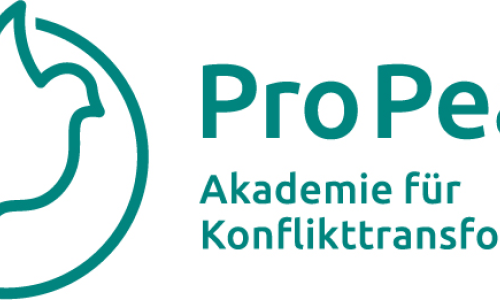
Mr. Kai Brand-Jacobsen
Kai Frithjof Brand-Jacobsen is regarded as one of the leading pioneers, innovators and practitioners in the field of peacebuilding, security and addressing challenging and complex conflicts and crisis in the world today. For 20 years he has worked across all continents and many of the most challenging war zones and crisis situations at the invitation of the United Nations, governments, international agencies and organizations, and communities affected by war. He is currently a Senior Researcher for PATRIR in the EU consortium projects “Takedown” and “PeaceTraining.EU”. In 2016 he headed the UN-supported Nineveh Paths to Social Cohesion, Coexistence and Peace project in Nineveh, Iraq-KRG, one of the areas worst affected by the ongoing war with ISIS. He has since led engagements to support sub-national mediation and peace processes in Libya, improving early warning and integrated peacebuilding and prevention in Nigeria, and headed a unique engagement by UNAMID to support the government of Sudan on stabilization, peacebuilding and recovery in Darfur. He is a practitioner with extensive experience in mediation and facilitation of peace processes and working on the ground to prevent violent conflicts, end wars, and support reconciliation and healing after violence. He also works as IPDTC’s senior trainer and has provided more than 400 training programmes for governments, UN missions and agencies, and organizations in the field. He is invited around the world to facilitate multi-stakeholder reviews, strategic planning processes, and evaluations of policy and practice, and has provided more than 100 keynote speeches for the UN Secretary General’s Office, Oxford, Columbia University, and many other institutions and events in the field. His work is one of the subjects of the recent documentary movie In Pursuit of Peace (https://vimeo.com/150351138)
| Thema | Levels | Sprachen |
|---|---|---|
| Konflikttransformation | Basic | English |
| Konflikttransformation | Advanced | English |
| Missionsplanung | Basic | English |
| Zivile Friedensförderung | Basic | English |
| Zivile Friedensförderung | Advanced | English |
| Konfliktanalyse | Basic | English |
| Konfliktanalyse | Advanced | English |
| Konfliktmanagement & Konfliktlösung | Basic | English |
| Konfliktmanagement & Konfliktlösung | Advanced | English |
| Zielgruppe | |
| Zertifikate | |
| Customised Trainings | Yes |
| Fertigkeiten (Skills) |
2. Advocacy for Peacebuilding Handook and Training Manual, DDG-DRC (June 2018)
3. Peace Training: The Handbook (May 2018), PeaceTraining.eu
4. The European Conflict Prevention and Peacebuilding Training Curricula Compendium (May 2018), PeaceTraining.eu
5. Libya: A Guide to Municipal Mediation, Peacebuilding & Sub-National Peace Processes (May 2018) VNG
6. Technology Assessment and Modern E-Approaches to Conflict Prevention and Peacebuilding Training, co-authored with Stela Shiroka, February 2018, PeaceTraining.eu
7. Existing Peacebuilding and Conflict Prevention Curricula Report (co-authored with Svenja Wolter, Andra Tanase, David Curran), March 2017, PeaceTraining.eu
8. Handbook: Community-Based Mediation, Dialogue and Reconciliation in Nineveh, UNDP Iraq, 2015
9. A Guide to Multi-Stakeholder Processes for Prevention, supported editing and input, GPPAC
10. Peacebuilding Strategic Planning: Field Manual, PAX, February 2015
11. Infrastructure for peace: A way forward to peaceful elections with Paul van Tongeren, in New Routes, NUMBER 1, 2012. Elections: Free, fair-and nonviolent?
12. Searching for Peace in Iraq (DPO– PATRIR/NOVA (February 2012)
13. Commonwealth Secretariat: Tools, Options and Strategies for Good Offices, Prevention and Peacebuilding. Operational Guidance Note. DPO-PATRIR and Commonwealth Secretariat. (June, 2011)
14. Commonwealth Secretariat: Working Together for Prevention and Good Offices. Operational Guidance Note. DPO-PATRIR and Commonwealth Secretariat (2010)
15. Palestine and Israel - Improving Civil Society Peacebuilding, Strategies, Design, and Impact. DPO– PATRIR/NOVA (2010)
16. Institutional Needs Assessment and Development Plan: The Commonwealth Secretariat – Enhancing Good Offices and Prevention Capacity, DPO-PATRIR and Commonwealth Secretariat. Co-written with Denis Matveev (2010)
17. Peacebuilding: The State of the Field in Ricci, Andrea, From Early Warning to Early Action?: The Debate on the Enhancement of the EU´s Crisis Response Capability Continues, (Vol 3) Publications Office, Brussels (2010)
18. Peacebuilding: 12 Dynamics, in Marc Pilisuk and Michael N. Nagler, (Eds.) Peace Movements Worldwide: History, Psychology, and Practices, Praeger, Santa Barbara (2010)
19. Contributions to: Matveev, Denis. Iurie Ataman and Svetlana Baldenkova. Civil Society Peacebuilding Guide for Moldova-Transdniestria. JCDC/PATRIR (2009)
20. Conflict Analysis in Young, Nigel (ed), Peace Encyclopaedia. Oxford: Oxford University Press (2009)
21. Early Warning & Prevention: Quick Reference Guide, DPO-PATRIR / Commonwealth Secretariat (2009)
22. Civil Peace Service Policy Paper EN.CPS (2008)
23. Organisational Strengthening and Institutional Development: One Text Initiative. DPO-PATRIR. Co-written with Denis Matveev (2007)
24. No Fist is Big Enough to Hide the Sky: The Power of Nonviolence. Rupesinghe, Kumar (ed), Nonviolent Coexistence. Colombo: Foundation for Co-Existence. 2007
25. Lessons Learned Report. Paths to Peace Education in Europe: Experiences, Lessons Learned and Opportunities. Associations and Resources for Conflict Management Skills (ARCA). 2007
26. Peace Studies, Peace Movements, Peace Praxis, DPO (2004)
27. Somalia: Proposals for Strengthening International Support for Reconciliation. Nairobi: Novib. (2004)
28. Toolkit for Peacebuilding and Conflict Transformation in Nepal. GTZ/PATRIR (2003)
29. Peacebuilding and Conflict Transformation Nepal: A Comprehensive Strategic Framework. GTZ/PATRIR (2003)
30. Brand-Jacobsen, Kai, Johan Galtung and Carl Jacobsen, Searching for Peace: The Road to TRANSCEND. London: Pluto Press (2002)
31. Poverty and War with Carl Jacobsen, Seminar Paper for Pugwash 1999
32. Our War Cultures Defining Parameters. ICL Research Paper #24. (1999)
33. Beyond Security: New Approaches, New Perspectives, New Actors. ICL Research Paper #23. (1999)
34. Israel-Palestine: A Call to Action. TRANSCEND (2001)
35. Israel-Palestine: The Need for a Just Peace. Nordic Peace Research Institute Research Paper/TRANSCEND. (2000)
36. Beyond Mediation: Towards Holistic Approaches to Peacebuilding and Peace Actor Empowerment. ICL Research Paper #19. (1999)
37. Kosovo/a, Yugoslavia, the World: A House in Flames. ICL Research Paper #20. (1999) Das Scheitern von Friedensverhandlungen oder imperialistische Strategie? Zeitung fur Politische Okologie, No. 10, April/May (1999)
38. Transcending the State: New Visions, New Actors, New Realities. ICL Research Paper #16 (1999)
39. Cultures of War/Cultures of Peace: Perspectives from Afghanistan. ICL & Cooperation for Peace and Unity in Afghanistan, Joint Research Paper. (1998)
40. Afghanistan: A TRANSCEND Perspective. TRANSCEND and ICL (1998)
41. Peacebuilding and Peaceful Conflict Transformation in Afghanistan: A Three-years Strategy Document for Co-operation for Peace and Unity in Afghanistan. CPAU (1998)
Bitte klicken Sie auf den Button, um die Nachricht zu übermitteln. Kontakt aufnehmen

